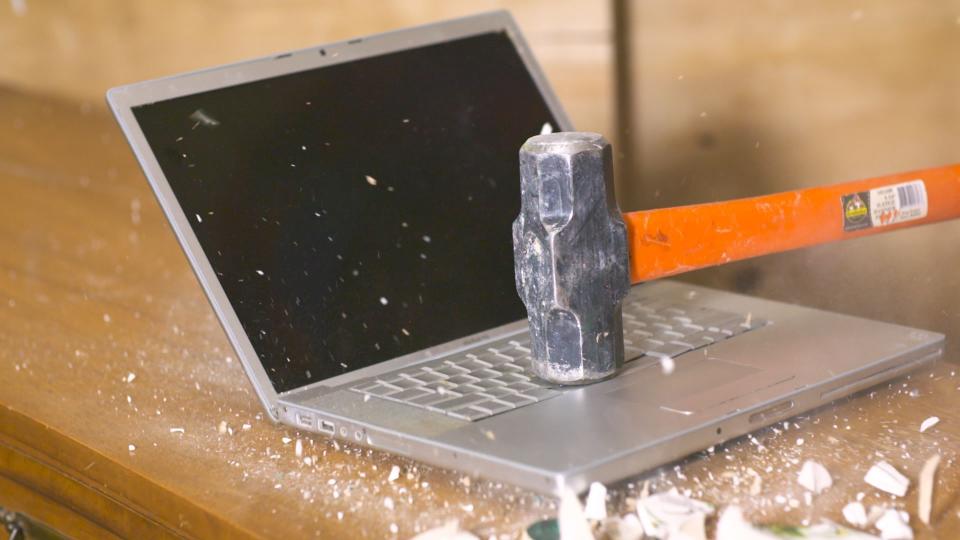Anybody who did high school debate knows it's the worst way to tackle climate change

Anybody who spent time in the low-stakes-but-ego-ridden world of high school debate knows: Debate is a terrible way to address a topic with any semblance of subtlety.
That goes double for any topic related to science.
Climate change, then, would make for a particularly terrible topic for an open debate. It's no coincidence then that Scott Pruitt, administrator of the Environmental Protection Agency and an avowed climate denier, has been pushing for a "red team/blue team" debate around the science of climate change.
Pruitt does a good job of making the idea sound reasonable enough.
"There are lots of questions that have not been asked and answered," Pruitt said. "Who better to do that than a group of scientists ... getting together and having a robust discussion for all the world to see."
SEE ALSO: The 'debate' Rick Perry wants to hold on global warming is total BS
A red team/blue team is a particular style of debate in which one side (red) challenges a consensus. The other side (blue) defends it.
Groups of scientists, particularly climate scientists, do this constantly. They hash out findings by publishing studies in peer-reviewed journals and at major conferences. They just don't do it in a debate format — and for good reason.
High school debaters know what debate is about, and it's not about facts or policy or rational thought. It's about people — error-prone, confirmation-seeking, causation/correlation-confusing, generally-not-that-sharp people.
It's a perfect format for climate deniers seeking to take their science-deficient case to the American public. That's why the debate has been roundly rejected by most any scientist worth their doctorate. Science and its methods exist to sift out human error. In debate, human error is just part of the fun.
That's a lesson high school debaters know well. They exist in a world where people spend hours in libraries combing through source material for crucial pieces of information that can make or break entire cases.
It's high school sports for future lawyers. Also, you learn sweet pen tricks.
One of the many skills high school debate taught me: how to twirl a pen. pic.twitter.com/jEjL4xlx5E
— Emily Farris (@emayfarris) May 30, 2017
The problem with high school debate is the problem with debate in general — the judges. Debaters battle in front of judges that are usually just the parents of kids on that school's team—that is to say just the regular-ole public. Any decent high school debater quickly learns that to win is not to be right, it's to read the judge and figure out how to get their vote. Same will go for a "debate" about climate change.
It's worth noting that this is not an indictment of high school debate itself. I still look back fondly on my time in debate, where I learned far more from my debate teacher and fellow debaters than I did in any other class. It was the first piece of education that taught me how to think critically.
It's also how I ended up wearing dress clothes on the weekends while riding in a school bus without air conditioning in Houston, Texas. We weren't sweating through our khakis to defend an ideology.
Quite the opposite. Debate tests the skills of the debaters involved, not the actual merit of whatever topic or argument is being discussed. That's why it's the perfect format for climate deniers seeking to sway the public to their side without all that pesky science getting in the way. Two suave climate deniers will wipe the floor with a couple of numbers-focused scientists — and people will feel smarter for having sided with the deniers.
The public's overestimation of its own intelligence when it comes to complex topics speaks to the evil genius of a climate debate. A debate just seems like a good structure. It satisfies some notion that we are great judges that can understand complex topics and decide for ourselves. This is, of course, not the case. Humans tend to be easily swayed by any variety of elements that have nothing to do with the issues at hand when making judgements.
Yet a debate just seems so entirely reasonable. Debates are part of American history. If they were good enough for Abraham Lincoln and John F. Kennedy, they're good enough for some weather nerds ... right?
Climate scientists now face a no-win scenario. Doing the debate makes climate deniers appear on equal footing with climate scientists, elevating them far beyond where they should be. Such is the search for "balance" in the Trump era, where all viewpoints are worth of hearing. By that logic, it's worth having a debate between flat earthers and round earthers. In a world where all sides are worth hearing, experts and consensus are drowned out.
The alternative isn't much better. Rejecting the debate comes off as having something to hide. If scientists refuse to participate, climate deniers get to claim victory by forfeit. And then Pruitt and the EPA might hold the debate anyway.
If the debate does end up happening, just remember this one thing: Debate is about the people involved, not the topic at hand. Debate is not about finding facts, let alone making scientific discoveries. Debate is about selling—yourself, primarily.
WATCH: The best way to release stress? Break your computer.


